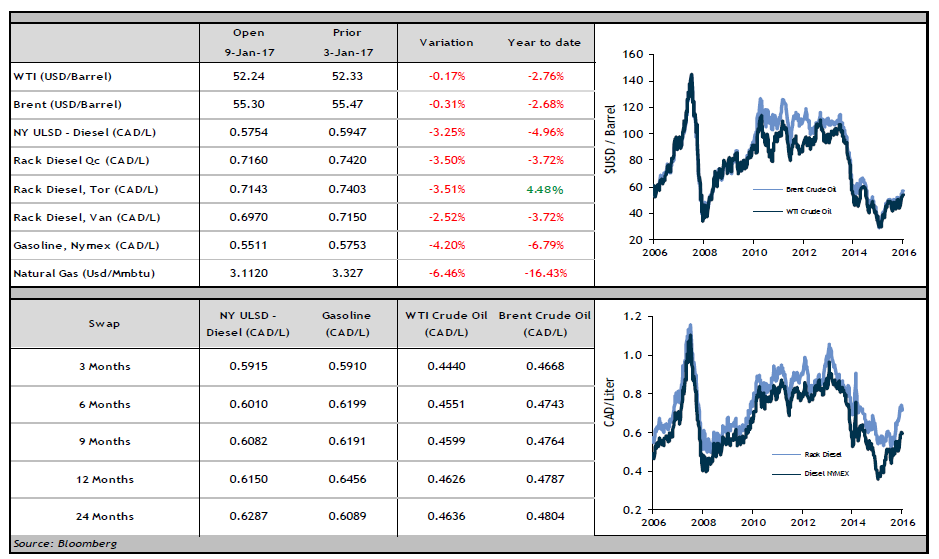The year that has just wrapped up was once again volatile for energy prices. In 2016, WTI and Brent oil prices rose 46% and 53% respectively. The increase for the two main refined products was even greater. When measured in U.S. dollars, diesel rose 51% while gasoline went up 29%. Although it is difficult to predict where prices are headed in 2017, many economists and analysts anticipate rising energy prices. It may therefore be advisable to lock in a portion of your short- and long-term fuel consumption budget.
• The agreement signed on December 10 by OPEC nations and non-member countries has officially taken effect and markets will be watching closely to see whether OPEC is actually able to reduce its output levels to 32.5 million barrels/day. Whether or not this agreement is upheld will certainly be one of the main elements affecting oil prices in 2017.
• This year, we will also have to keep a close eye on U.S. output figures. It will be interesting to see what effect higher oil prices have on the number of wells in operation south of the border. • As 2017 begins, inventory data from the Energy Information Administration last Thursday showed a considerable drop in crude oil stocks (decline of 7,051,000 barrels) .
As we start off a new year, feel free to contact us to review your fuel risk management policy. We would also like to take this opportunity to wish our clients a wonderful and happy 2017.

